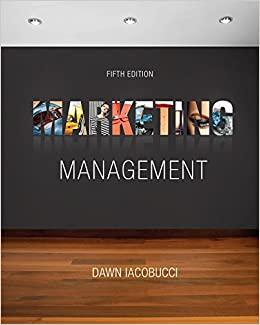Like a lot of massively successful consumer companies who want their customers to see they have big
Question:
Like a lot of massively successful consumer companies who want their customers to see they have big hearts, Starbucks offers a line of coffees for purchase made from small growers who meet certain economic and ethical standards. A challenge for Starbucks is that none of these such coffee growers are on a scale that offers any economy to the company for shipping, pickup, and processing. As a result, the costs to Starbucks are higher than for the mass suppliers of their standard coffees. Starbucks typically passes along some of those higher costs in higher prices to customers, reasoning that customers who care about such matters will happily pay for the extended benefits and feelings of goodwill. Costs to growers continually rise, sometimes modestly, sometimes sharply. It's getting to the point where Starbucks wants to take a number of the pricier growers back to the table to negotiate better deals (for Starbucks), and of course, Starbucks holds the threat over their heads that the supplier will be dropped.
Case Discussion Questions
1. What kind(s) of power does Starbucks hold over their suppliers in this case?
2. Use the double marginalization problem and solution guides to structure two alternatives: one in which prices to consumers are maintained and profits are split 3: 1 in favor of Starbucks, and one in which prices are raised 25% and profits are split 2:1 in favor of Starbucks. Assume the following: current price is $8.00 for a bag of this coffee, manufacturer costs have been $2.00, their mark-up has been $2.00 (and they're seeking more}, retailing costs have been $ 1.00 and mark-up has been $3.00. What are the resulting mark-ups for the manufacturer and retailer (Starbucks) under each scenario? How will suppliers and consumers respond to either scenario?
Step by Step Answer:






